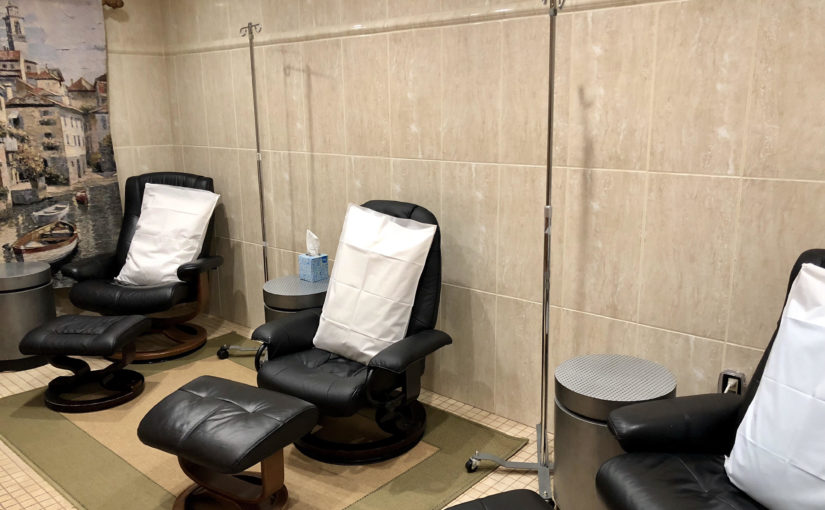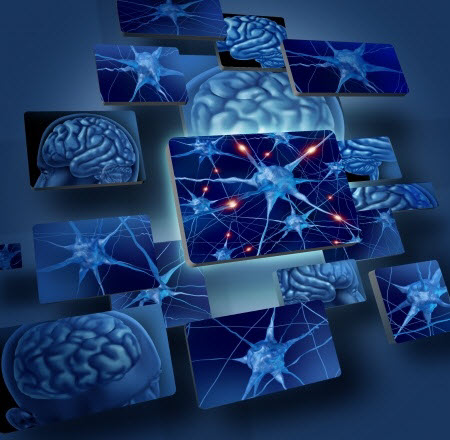
Tummy Troubles
Posted March 12th, 2024
Stomach cramps, bloating, gas, constipation, diarrhea, or anything else for that matter? You don’t need to suffer in silence! Dealing with tummy troubles can be a painful, stressful, even embarrassing ordeal for a lot of people, yet people don’t actually realize just how common these digestive issues are. In terms of our general health and well-being, gut health actually plays a key role in our overall physical and emotional well-being. Put simply, this basically means that if your gut health is off, even slightly, you yourself will feel ill and may suffer from numerous other ailments.
The good news is that you can make positive changes and you can do something about your digestive issues. With the type of testing that we use at The Renewal Point, we can quickly, and precisely, make a diagnosis of what may be troubling you; then we can address the issues from a holistic perspective, which means getting to the root of the problem.
Sonia’s Story – I’d like to begin by taking a look at Sonia, one of our patients. Sonia is a 42 year old woman who works as a realtor, is married, and has two healthy and happy children. On paper, Sonia was living the American dream and you’d think her life was great, but it wasn’t. You see, if Sonia was to make plans, she would have to plan her entire day around her tummy troubles. Typically, she would suffer from bouts of diarrhea, and would often have to go at least 8 times per day, sometimes more. Needless to say when out and about, this was very embarrassing and worrying, especially if there was no bathroom in sight. Even her private life suffered as a result of her bowel troubles. She ate right, tried to keep fit, and visited doctor after doctor who sadly could not help. Sonia is not alone, as around 74% of all people in the US suffer with GI issues. That means that only 26% of the populace can pretty much eat what they like, when they like, and not have to worry about stomach issues.
What is Irritable Bowel Syndrome? – Irritable Bowel Syndrome, better known as IBS, is basically a collection of ailments and afflictions that affect a person’s bowel habits and can cause things such as bloating, gas, constipation, cramps, or diarrhea. While not a life threatening condition, it can make life miserable for those suffering from it. Around 30 million US adults suffer with IBS. Typically your healthcare practitioner will make a diagnosis by ruling out other pathological conditions.
What causes IBS? – Perhaps most frustratingly of all, is the fact that experts are still not 100% clear on what exactly causes IBS. Some experts believe that bowel motility is a cause, where the muscles in the bowel fail to contract as efficiently as they should. Others believe that it is caused by changes in the nerves of the colon. There is also evidence to suggest that the condition could be down to hormonal imbalances as the condition typically affects twice as many women as it does men. Also, interestingly, is the fact that women have found that symptoms have been exasperated around their menstrual periods.
Integrative medicine for IBS – If you think you may suffer with IBS, it may be worth speaking to an Integrative Medicine expert who will look at things from a holistic standpoint. An Integrative Medicine expert will do testing focused on:
- Physical activity
- Emotional well-being
- Nutrition
They will pay close attention to all three of these areas to help make a clear diagnosis. As IBS is such a complex condition, this approach be especially helpful in finding the root cause.
Intestinal health and the nervous system – The nervous system of the intestines is highly complex, and many people actually refer to it as the ‘second brain’. This is actually where sayings such as “I have a gut feeling about…” actually comes from. Because of the complexity of the intestinal nervous system, often when people are going through anxiety, stress, etc, they could easily suffer with IBS-like symptoms.
Testing for IBS – To begin with, when testing for IBS, we begin by looking at your eating habits, including mastication (how you eat and chew your food). We will also look into digestive function, activation of enzymes, and how well a person is able to absorb both micro, and macro nutrients from their food.
Potential triggers – In order to understand a condition, often it pays to understand what triggers it in the first place. Common triggers for IBS include:
Food intolerances – One of the most common IBS triggers worldwide, is actually food intolerance. Commonly you will find that symptoms can often be triggered by specific foods including:
- Glucose
- Lactose
- Fatty foods
- Fiber
- Sugar
When it comes to food intolerances, we will often perform food sensitivity testing to determine which specific types of food the patient could be the most sensitive to. Once they have been identified, they can then be removed from the diet, which will normally provide a vast reduction in the symptoms of the condition. Gluten sensitivity is one of the more common intolerances, often resulting in celiac disease. Therefore by going gluten-free, IBS triggers and symptoms can be managed a whole lot easier. Fructose and lactose intolerances are also common triggers – affecting around 35% of all IBS patients.
Fiber – Some people find that fibre can trigger IBS but in a lot of cases fiber can actually be hugely beneficial. We actually recommend the use of soluble fibers such as inulin and psyllium, as well as modified spectrum. These actually function as prebiotics for probiotics found in the digestive tract. Probiotics are healthy bacteria living within us, whereas the prebiotics, which in this case would be the fiber, basically act as food and nutrition for the bacteria.
Treating and improving IBS – Finally, we’ll finish on a high note as we look at a few ways of effectively treating and improving IBS symptoms. These include:
- Exercise
- Getting enough sleep each night
- Supplements including probiotics and prebiotics
- Improving pancreatic enzyme counts with supplements
- Botanical medicines such as peppermint oil, ginger, and Aloe
- Mind and body therapies
- Stress management
- Hypnosis, CBT, and psychotherapy
- Pharmaceuticals such as Cromolyn
- Leading a healthy and balanced lifestyle
If you suffer from any of the symptoms that we’ve mentioned in this article, and are looking for an integrative approach, we suggest that you contact us for a consultation. You don’t need to suffer any longer!
References:
Rakel, David. (2017). Integrative Medicine. Philadelphia, PA: Elsevier.




